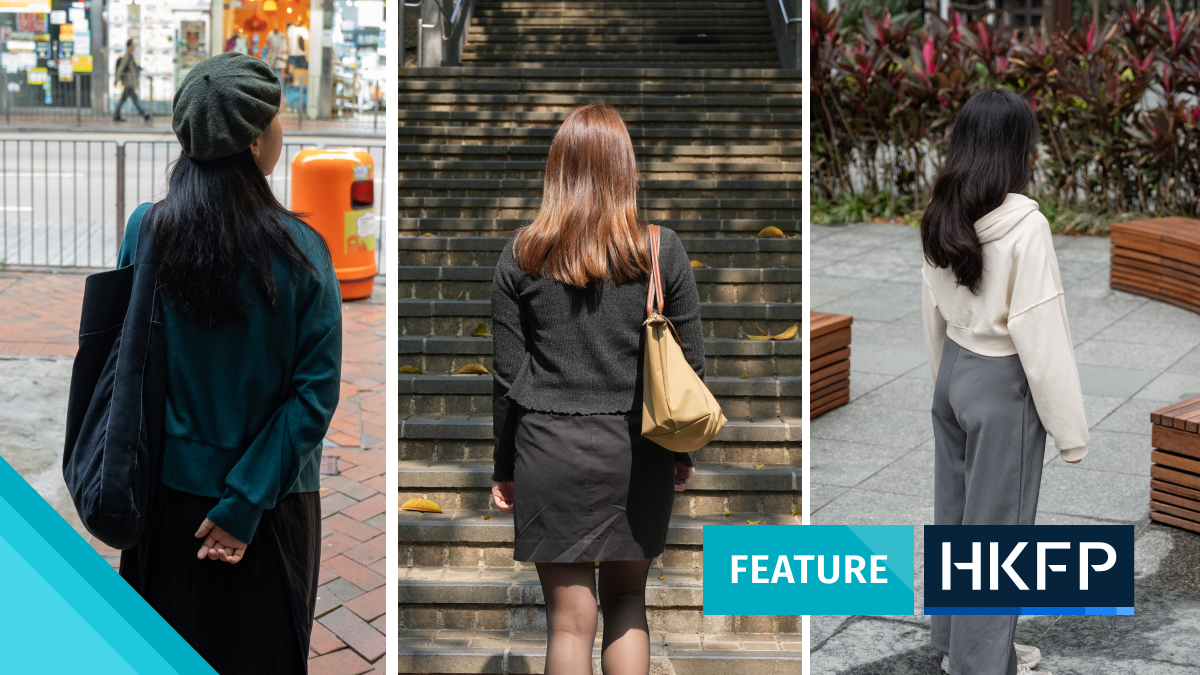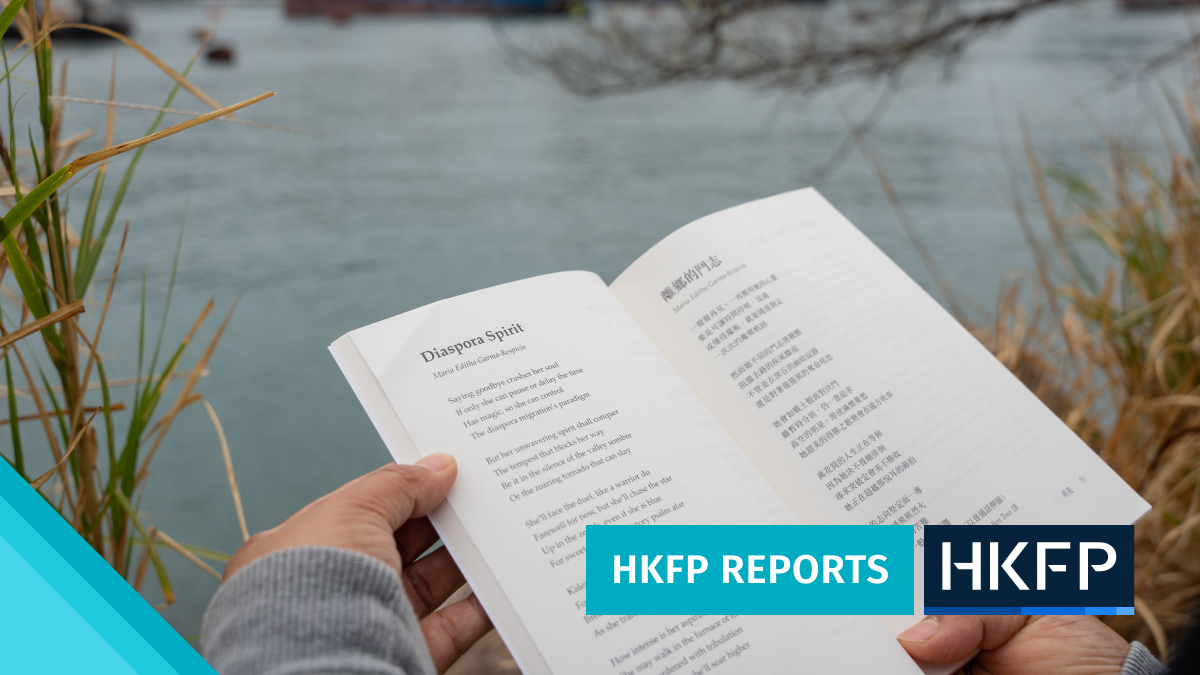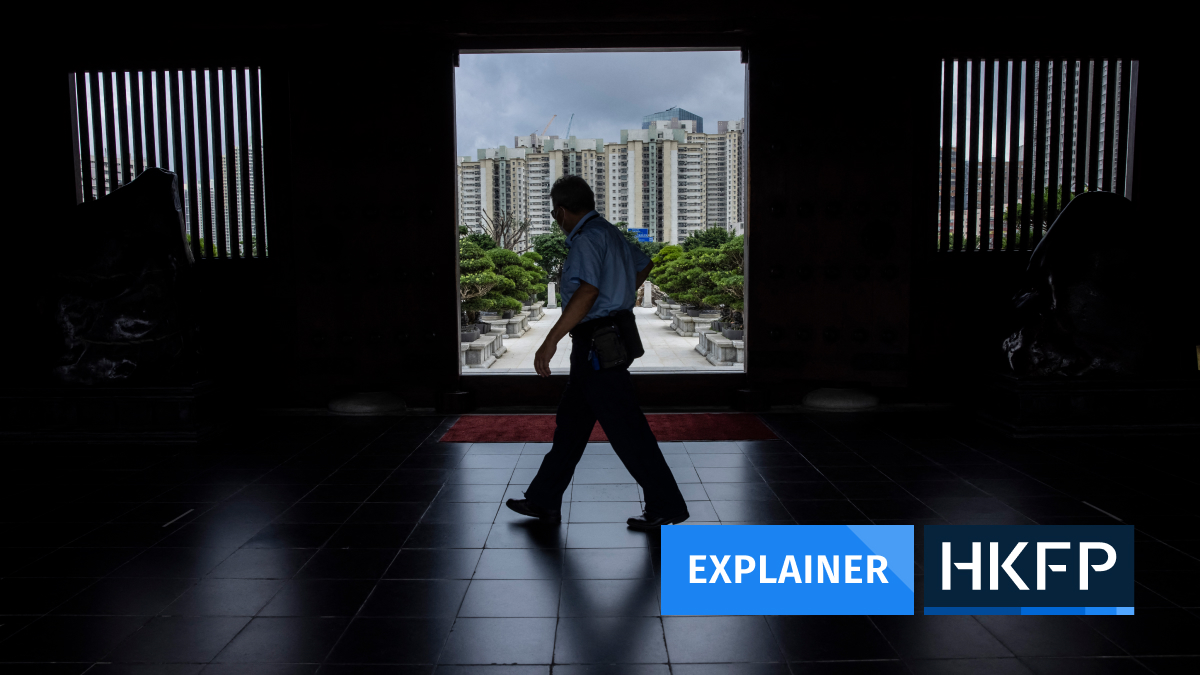Photographer and artist Xyza Cruz Bacani knows what it is like to grow up without a mother present; hers was overseas working in the home of a Hong Kong family to provide a better life for Bacani and her siblings, who remained in the Philippines.
Years later, Bacani joined her mother to work in that same Hong Kong household as a migrant domestic worker, a move that proved fateful for the young Filipina, as she discussed in the latest episode of the HKFP Yum Cha podcast.
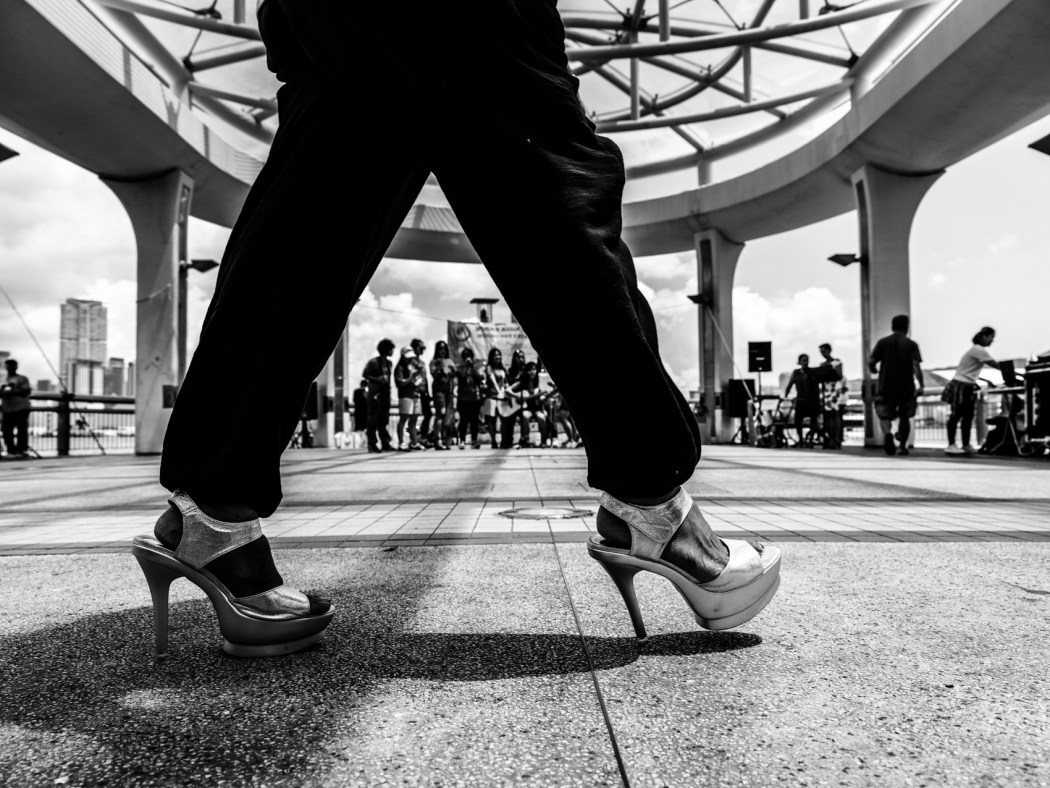
Now based in New York City, Bacani spoke to HKFP during her first trip back to Hong Kong in years after being kept away by a whirlwind work schedule and, later, Covid-related travel restrictions. She was in the city to promote an exhibition of her work, which was organised by NGO Pathfinders Hong Kong to coincide with the release of a report on the impact of migration on children.

Chankalun – A Bright Future for Hong Kong's Neon Heritage – HKFP Yum Cha
- Chankalun – A Bright Future for Hong Kong's Neon Heritage
- Carol Liang – Happy Hong Kong?
- Astrid Andersson – Wildlife Trade and Alien Invaders
- Xyza Cruz Bacani – Migrant Domestic Workers and the Children Left Behind
- Cynthia Cheng and Maxime Vanhollebeke – An Invisible Web of Workers
- Vaudine England – A City Between East and West
- Regina Ip – Matters of Security
- Emily Lau – Fighting Two Tigers
Apple | Spotify | Google Podcasts | Stitcher | Overcast | Amazon Music | Pandora | RSS
“We have to include children in conversations about migration because most mothers migrate because of their children… because they want to give an economic stability for their children,” Bacani said.
“In an ideal world, no mother should be separated from their children, ever.”
When Bacani arrived in Hong Kong in 2006, aged 19, she said she “sensed the [city’s] kinetic energy,” and was “fascinated” by it.
“It was an adventure, you know. I didn’t know what was going to happen to me, but at that moment, I was like: ‘Oh my God, this city is beautiful’.”
That first impression of Hong Kong played an integral role in shaping Bacani’s future. She soon began travelling across the city with a camera on her days off, shooting what would become her signature intimate black and white scenes. Her impetus at the time was sharing what she saw through the lens with her mother, who despite having lived in Hong Kong for years had seen very little of it.
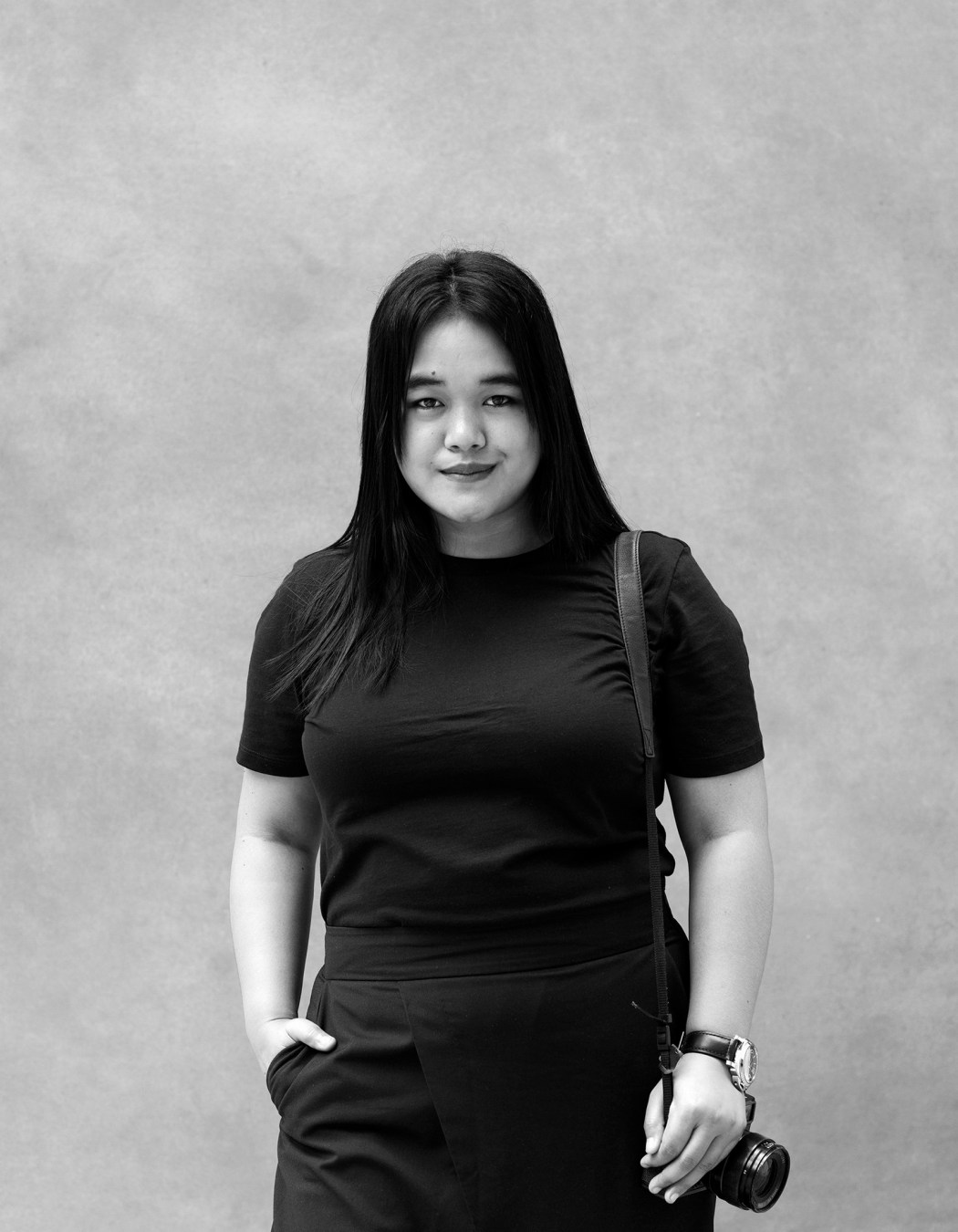
“My mom… chose to work on her holiday to send money to the Philippines, and she has not really experienced Hong Kong,” Bacani said. “So I thought, through my photographs, at least she can see it.”
She continued: “It’s a very interesting city, the light is beautiful… like if you look at it, it’s different shades of grey, so when you do a black and white photo it really pops out… once you capture the energy in a frame, you can almost feel it jumping out to you.”
Bacani posted her photographs to Facebook, and they were seen by a journalist in San Francisco, in the US, who sent them to The New York Times, which published them.
Bacani described what happened next as “like a rollercoaster.”
“I didn’t ask for it, but I think the universe pushed it,” she said, saying that she had been happy in Hong Kong, with her mum and Mrs Louis, their employer.
Bigger things beckoned, though, and Bacani began working as a street and documentary photographer for major international media, including National Geographic and America’s National Public Radio.
In 2017, she produced a book called We Are Like Air, celebrating migrant workers and their complex identities as women, mothers, individuals. Explaining the title, Bacani said: “Migrant workers for me are like air. They’re important, a necessity, but… they’re unseen, like air.”
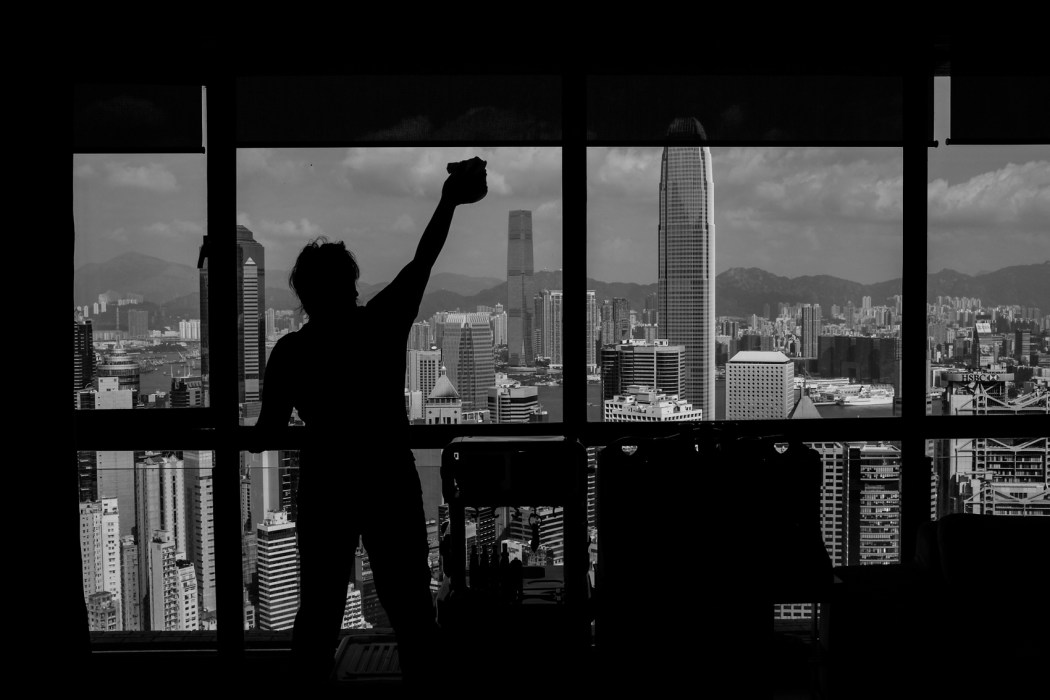
Her mother, and their family’s story, is integral to the book, which, Bacani said, positions “migrant workers as champions.”
“[Migrant domestic workers] are the axis that carry both sides of migration; they’re actually carrying their families, and the families they serve,” she continued.
“It’s always easy to celebrate people like me, who broke the ceiling. But often we forget that in everyday lives we have these women that are working, holding everything together holding everything together, they’re like glue… for me their champions. They’re not just victims. They’re champions.”
HKFP Yum Cha
New episodes of HKFP Yum Cha are published on Saturdays. The first season features a diverse range of voices, from artists to scientists, who share their perspective on Hong Kong as it is today through the lens of their industry.
Listen and subscribe wherever you get your podcasts.
Support HKFP | Policies & Ethics | Error/typo? | Contact Us | Newsletter | Transparency & Annual Report | Apps
Help safeguard press freedom & keep HKFP free for all readers by supporting our team

Original reporting on HKFP is backed by our monthly contributors.
Almost 1,000 HKFP Patrons made this coverage possible. Each contributes an average of HK$200/month to support our award-winning original reporting, keeping the city’s only independent English-language outlet free-to-access for all. Three reasons to join us:
- 🔎 Transparent & efficient: As a non-profit, we are externally audited each year, publishing our income/outgoings annually, as the city’s most transparent news outlet.
- 🔒 Accurate & accountable: Our reporting is governed by a strict Ethics Code. We are 100% independent, and not answerable to any tycoon, mainland owners or shareholders. Check out our latest Annual Report, and help support press freedom.
- 💰 It’s fast, secure & easy: We accept most payment methods – cancel anytime, and receive a free tote bag and pen if you contribute HK$150/month or more.
MORE Original Reporting
HKFP has an impartial stance, transparent funding, and balanced coverage guided by an Ethics Code and Corrections Policy.
Support press freedom & help us surpass 1,000 monthly Patrons: 100% independent, governed by an ethics code & not-for-profit.





